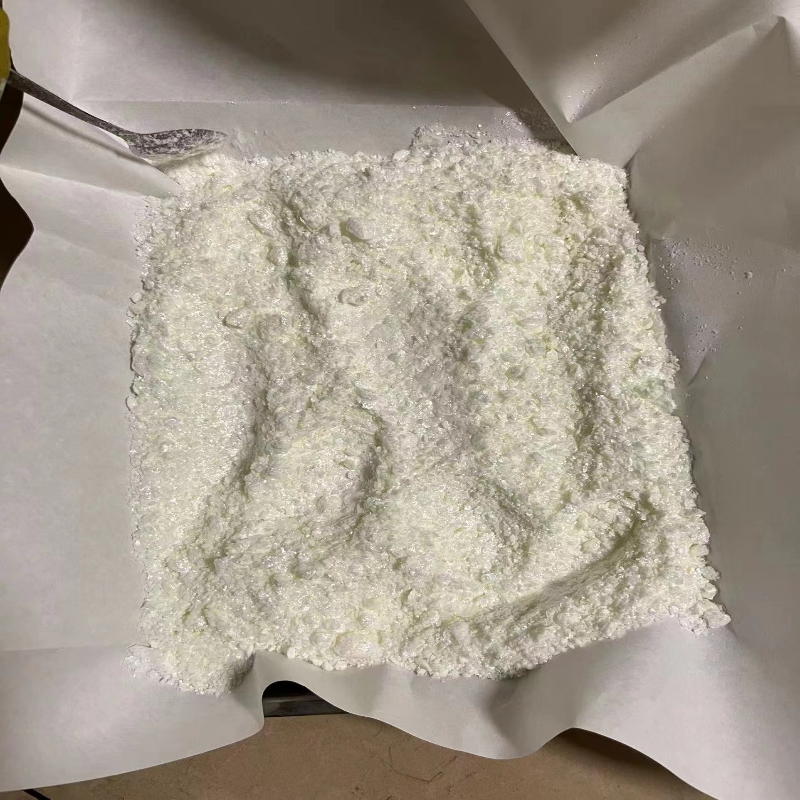-
Categories
-
Pharmaceutical Intermediates
-
Active Pharmaceutical Ingredients
-
Food Additives
- Industrial Coatings
- Agrochemicals
- Dyes and Pigments
- Surfactant
- Flavors and Fragrances
- Chemical Reagents
- Catalyst and Auxiliary
- Natural Products
- Inorganic Chemistry
-
Organic Chemistry
-
Biochemical Engineering
- Analytical Chemistry
-
Cosmetic Ingredient
- Water Treatment Chemical
-
Pharmaceutical Intermediates
Promotion
ECHEMI Mall
Wholesale
Weekly Price
Exhibition
News
-
Trade Service
Chemical giant BASF has warned of serious consequences if gas supplies to Russia are disrupted, German newspaper Frankfurter Allgemeine reported
.
BASF said its European operations would be severely disrupted if gas supplies were halved
.
Michael Vassiliadis, a member of its board of directors and chairman of the chemical union, pointed out that BASF's production site in Ludwigshafen, Germany, which is known as the world's largest chemical plant with 40,000 employees, will have to close if natural gas supplies are cut in half
.
BASF's production site in Ludwigshafen, Germany (picture from BASF)
He further explained that if the gas supply fell below 50%, the site would no longer be able to operate stably and would have to shut down completely
.
Earlier, the Russian government asked the "unfriendly country" to pay its gas bills in rubles from April 1, but the European Union, which pays mainly in euros, rejected the proposal
.
Germany has announced an "early warning" of a possible gas supply emergency over a "payment dispute"
.
BASF therefore issued the above-mentioned suspension warning
.
"Continuous supply of natural gas is essential for chemical production
.
" BASF said that in Europe, 60% of the natural gas it buys is used to produce the energy it needs - steam and electricity; the remaining 40% is used to produce basic chemicals, which Chemicals provide a wide range of products for almost all industrial sectors
.
BASF CEO Martin Brudermüller said earlier that there is no short-term alternative to using other feedstocks to replace natural gas for chemical production, but the group is stepping up efforts to reduce its reliance on natural gas
.
It is understood that the main component of natural gas is methane, and the carbon emission coefficient is only 1.
6tCO2/tce, which is much lower than that of oil and coal
.
In the context of accelerating energy transformation and emission reduction, natural gas has become an important transitional energy source
.
At present, the demand for natural gas is concentrated in basic industries and households, accounting for 34% of energy consumption in the United States, almost equal to oil, and accounting for 25% of energy consumption in Europe, second only to oil
.
It is difficult to meet the needs of production and consumption, and the EU's dependence on natural gas imports continues to increase.
In 2019, the import reached 782.
6 billion cubic meters, and the import dependence reached 80-90%
.
Among them, 40% of the imports come from Russia
.
Although the United States has previously said that it will add an additional 15 billion cubic meters of natural gas to the EU this year
.
But compared with the 155 billion cubic meters supplied by Russia, it is far from enough
.
It is worth noting that Russian natural gas can be transported by pipeline, while US natural gas can only be transported by ship, and shipping will only increase the cost of natural gas
.
In addition to BASF's indication of the impact of gas curbs, its Belgian peer Solvay said on Thursday that gas problems will accelerate price increases this year to make up for additional increases in energy costs
.
However, Covestro CEO Dr.
Markus Steilemann said in an interview with CNBC earlier that the situation in Russia and Ukraine has not affected Covestro's business for the time being, but the group will focus on energy supply, especially natural gas and oil problem
.
"We want to expand the supply of raw materials with global partners
.
" He emphasized that since 2020, Covestro has the ability to convert these cost increases due to raw materials, natural gas and oil, and electricity
.







